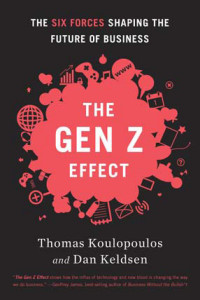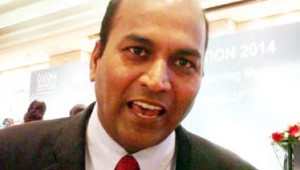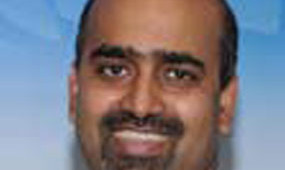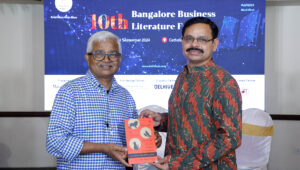The Gen Z Effect on business could be as big as the fall of the Berlin Wall on world politics. In a way, it is the fall of the barrier between generations brought about by another revolution – technology. This revolution could put an end to the muchtouted generation gap in work-places, among communities or even at home and bridge the gap that exists today
Authors Tom Koulopoulous and Dan Keldse, in their stunning book, The Gen Z Eff ect – The Six Forces Shaping the Future of Business, have discovered that technology, rather than separating the generations, is actually bringing them closer and that this is part of a larger shift in how people think about business and life. “The generational divides have stood in our way for so long, undermining our ability to innovate in what is quickly becoming a post-generational world. Post-generational thinking requires that we not only change our individual perceptions of the boundaries between generations, but also build organizations that can do the same,” the authors wrote in the blurb of the book. The question is: What impact will this finding have on the future of business, markets, and educational institutions? The authors delve into a vision of the future where disruptive invention and reinvention is the acknowledged norm, touching almost every aspect of how we work, live and play – From radical new approaches to marketing and manufacturing to the potential obliteration of intellectual property and the shift to mass innovation, to the decimation of our oldest learning institutions through open source and adaptive learning.
Jim Champy, author of Reengineering the Corporation, says: “For years, I have experienced enterprises losing the wisdom of generations because of generational divides. This book off ers hope and prescription for stemming that loss. It comes at a critical time in the evolution of organizations.”
Instead of the divide, the authors showcase ideas where learning, gaming, technology, and age collide instead of distinct patterns that the world is so used to today. In fact, the authors show how the ‘generational’ perspective of human behavior and attitude is dissolving.
The six forces described in the book are: Hyperconnectivity; Breaking generations; Life hacking; Sling shotting; The world is my classroom; and Affluence to influence.
Hyperconnecting
This is the defining force driving Gen Z. Soon every person, machine, and object will be connected–creating a near frictionless engine of innovation. This will offer abundance of data and sensors to intimately understand a
customer’s behavior and personalize every interaction.
Breaking Generations
By 2100 tere will be a global 1:1 ratio of toddlers to 65 year olds. In 1950 that ratio was 10:1. Today it’s 3:1. The result of this shift in population distribution will disrupt virtually every business and social institution,
locally and globally. Learning to deal with and leveraging this disruption will be the most critical factor for the success of all businesses in the 21st Century. What this means is if we can’t get beyond generational labels we
end up with generational chasms that will devour our business.
The Shift from Affluence to Influence
Your advertising budget is no longer the most critical element in influencing the decisions of Gen Z. Z-ers are powerful influencers and they respond to meaningful conversations and personalized messaging. They have a built-in
media channel to billions in the form of the Internet.

The authors say that these six forces are not subtle generational shifts. Instead they challenge some of the most basic beliefs about how we build and operate our businesses. Collectively they fuel a revolution on a scale unlike anything the world has yet experienced. It’s disruptive, powerful, and often frightening, but here is the good news; we are all Z if we choose to be. Generations are no longer about age but about behaviors. Better yet, the leaders of this revolution are already giving us the playbook with all of the rules we need to survive and thrive–you just need to pay attention.
Slingshotting
The fifth force, and perhaps the most invisible, is slingshotting, which is what happens when the vast majority of a potential audience suddenly takes up technology that was only available to a select few. Within the decade any human being, without regard to geographic or political location and economic status, will be able to connect to the Internet. The result will be the single greatest period of value creation and innovation humanity has yet to experience.
The World as My Classroom
Massively Open Online Classrooms promise to disrupt higher education and create a globally educated workforce. With the next decade we are likely to see more graduates of online education than in the entire history of traditional classroom education. Gen Z expects that if it’s worth learning it’s online, it’s free, and it’s a lifelong process.
Life-hacking
The final force is one of the most powerful shifts in how Gen Z values and views the world. There is a deep sense of purpose that drives Gen Z to game the system in whatever way is best suited to make it serve their view of what is fair, sustainable, and socially conscious. Z despises the protection of intellectual property, believes that innovation should be boundless and instantaneous, and access to capital should be democratized and available to all good ideas. In short they believe in the ultimate efficiency of a free market unfettered by the constraints of the past.












Recent Comments